CEE | Center for Experimental Ethnography
Menu
A CONTINUING CONVERSATION ABOUT MOVE AND THE PENN MUSEUMMAY 12The recent revelations concerning the Penn Museum and human remains have raised a number of questions about the histories of anthropology and ethnographic museums, and about the practices of collecting, exhibiting, and researching:
Our guests Rachel Watkins (American University), Aja Lans (Syracuse University), and Delande Justinvil (American University) will help us think through these questions, and more… OUR GUESTS
PRE-READINGS / VIEWINGS Blakey, M. L. (2020). “Archaeology under the blinding light of race.” Current Anthropology, 61(S22), S183-S197. Justinvil, D. & Colwell, C. 2021. “US museums hold the remains of thousands of Black people. What can be done about it?” Available at: Lans, Aja. 2020. “Decolonize This Collection: Integrating Black Feminism and Art to Re-Examine Human Skeletal Remains in Museums.” Feminist Anthropology DOI: 10.1002/fea2.12027 Watkins, Rachel. 2020. “An Alter(ed)native Perspective on Historical Bioarchaeology.” Historical Archaeology 53(4). Reclaiming the Ancestors: Indigenous and Black Perspectives on Repatriation, Human Rights, and Justice, September 2020.
1 Comment
The event featured Reggie Wilson in conversation with CEE Director Deborah Thomas, Jasmine Johnson, John L. Jackson Jr. and Jawole Zollar ABOUT THIS EVENT On May 1, we were honored to host a conversation featuring Reggie Wilson in dialogue with Jasmine Johnson, John Jackson, and Jawole Zollar regarding the film, “GROUNDS THAT SHOUT!...and others merely shaking.” This film emerged from Reggie’s work in 2018-2019, sponsored by the Pew Center for Arts and Heritage and organized through Philadelphia Contemporary, the Danspace Project, and Partners for Sacred Places. For this project, Reggie curated dance with local choreographers and dance groups at historical churches in Philadelphia. “Grounds that Shout!” was meant to explore the relationships between religion, movement, race, place, and the body, and to foreground how the histories of contemporary performance are intertwined with the legacies of African-American religious and religiously-affiliated spaces. Graduate students in CAMRA documented the project, With generous support from the Sachs Program for Arts Innovation, graduate students in CAMRA, and the resulting film, which was circulated ahead of time, provided the basis for our conversation. The film bears witness to Reggie’s process, documenting the development of movement, the relationships between performers and space, and the city and its denizens. The conversation was wide-ranging, addressing the overlapping circles of performance, method, and community-building, and the simultaneity of past and present. Listening to the distinct sounds of places and bodies in the film became an important way of becoming literate, of being able to hear the ground shout. And rapport with death, in this work, became a generative possibility where choreography was a practice of life. The film was Directed and Produced by Gordon Divine "Dee" Asaah. Executive Producer: Center for Experimental Ethnography in collaboration with CAMRA (Collective for Advancing Multimodal Research Arts) Watch the dicussion HERE
A program curated and organized by Jenny Chio, Spring 2021 Visiting Fellow at the Center for Experimental Ethnography (University of Pennsylvania) and Associate Professor of East Asian Languages & Cultures and Anthropology at the University of Southern California. RECAP With eleven films, three dialogues, two essays, and one live Zoom conversation, this film series illustrated the productive “unruliness” (to quote U Penn Professor Chenshu Zhou) of ethnography and film in exploring the contours of Indigenous identities and politics. Indigeneity, as the films and conversations revealed, encompasses stories of personal loss and memories of suffering, reflections on current social transformations and cultural subjectivities, and narratives of state violence and power in marginalized communities and upon individuals. Filmmaking has become a means to confront the lived realities of cultural and ethnic differences, claims to political sovereignty, and shared social histories that together constitute some of the possibilities of Indigenous experiences in China, Hong Kong, and Taiwan. [While the films are no longer available, the event website with film and filmmaker descriptions, dialogues, and essays is online: www.filmandethnography.org.] ABOUT This film and conversation series explores the category and concept of “Indigeneity” in the contemporary People’s Republic of China, Hong Kong, and Taiwan. In each political space, “Indigenous” has come to represent and symbolize the different stakes of identity, culture, and heritage in the modern world, while grappling with ongoing political tensions around national sovereignty, China’s global influence, and social solidarity. Whereas “Indigenous” in Hong Kong now refers to both a nativist political movement and marginalized communities that settled in Hong Kong prior to British colonial rule, in Taiwan Indigenous refers to Austronesian Aboriginal communities who align themselves with contemporary global Indigenous activists. In China, the term Indigenous itself is highly contested, as the Chinese state increasingly resists and represses claims to cultural self-determination amongst its ethnic minority populations. Thus, the films and speakers in this event all approach Indigeneity from their own personal backgrounds and experiences as citizens, artists, and scholars from and working in China, Hong Kong, and/or Taiwan. Dear Registrant: FORMAT The Contest over "Indigeneity": Film and Ethnography in China, Hong Kong, and Taiwan is an online exhibit includeing an event website, eleven films, three prerecorded discussions, and biographies of event guests, as well as a virtual screening week (Friday April 23- Friday April 30) and a live zoom discussion (Thursday April 29 at 7PM EDT). Event hosted by the Center for Experimental Ethnography, and co-sponsored by the Center for the Study of Contemporary China at Penn, and Penn Global film screening week | Friday April 23 -April 30, 2021 During this weeklong film screening, we invited participants to watch films by artists working on Indigeneity in China, Hong Kong, and Taiwan, curated by Jenny Chio. Information on these artists can be found here. TAIWAN- https://www.filmandethnography.org/taiwancross-straits-dialogue.html HONG KONG*-https://www.filmandethnography.org/hong-kong.html CHINA- https://www.filmandethnography.org/china.html We also invited attendees to listen to the pre-recorded conversations between the filmmakers, curator Jenny Chio, and invited scholars. LIVE CONVERSATION | Thursday april 29 at 7PM The live discussion on Thursday, April 29, 2021 at 7 pm EST/EDT took place with CEE Faculty Fellow Dr. Jenny Chio, Cui Yi (filmmaker and conservation ecologist), Dr. Aynur Kadi (assistant professor of Digital Media Arts at the University of Waterloo), Dr. Chenshu Zhou (Assistant Professor of Cinema Studies in the Department of History of Art at UPENN), Chan Ho-Lun Fredie (filmmaker and producer), Li Xin (a visual anthropologist and filmmaker), Dr. Miguel Angel Hidalgo Martinez (Assistant Professor of China Studies at Xi'an Jiaotong-Liverpool University) An Open Forum about MOVE and the Penn As many of you know, it was revealed last week that the remains of two of the children killed when the City of Philadelphia dropped two bombs on the MOVE compound in 1985 – Tree and Delisha Africa – had been held in the Penn Museum and used for research and teaching. Mike Africa, Jr., a MOVE family member, has circulated a number of demands including the return of the remains to the MOVE family, an apology and appropriate restitution, and the creation of a transparent, public investigation led by a MOVE-approved investigator into how these remains ended up in the Museum’s possession over the past 35 years. The Museum and the University have both issued statements.
Still, the questions remain:
The Center for Experimental Ethnography will facilitate a dialogue about these questions with Krystal Strong (GSE, Black Lives Matter Philly), who has been working closely with the Africa family and the MOVE community to develop a counter-archive. |
Categories |
Contact Us // 438 PENN MUSEUm // [email protected]
© 2018 The Trustees of the University of Pennsylvania
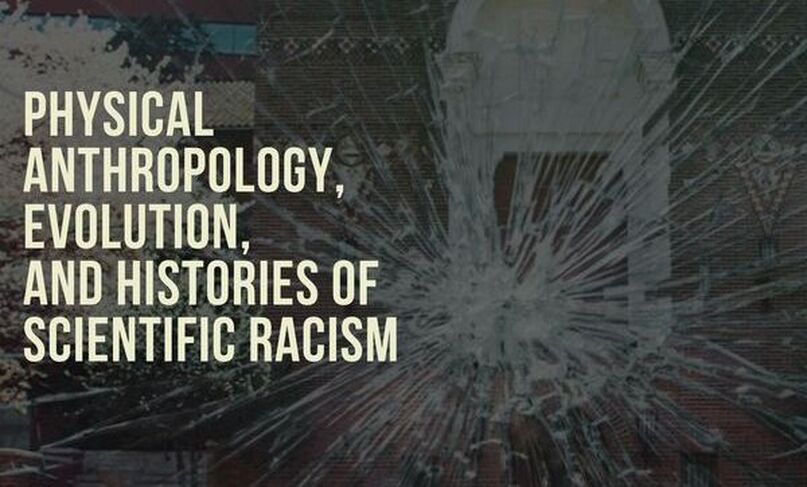
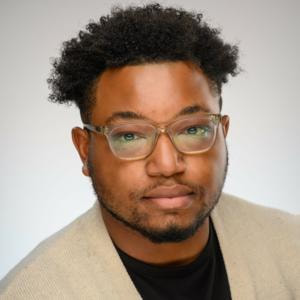
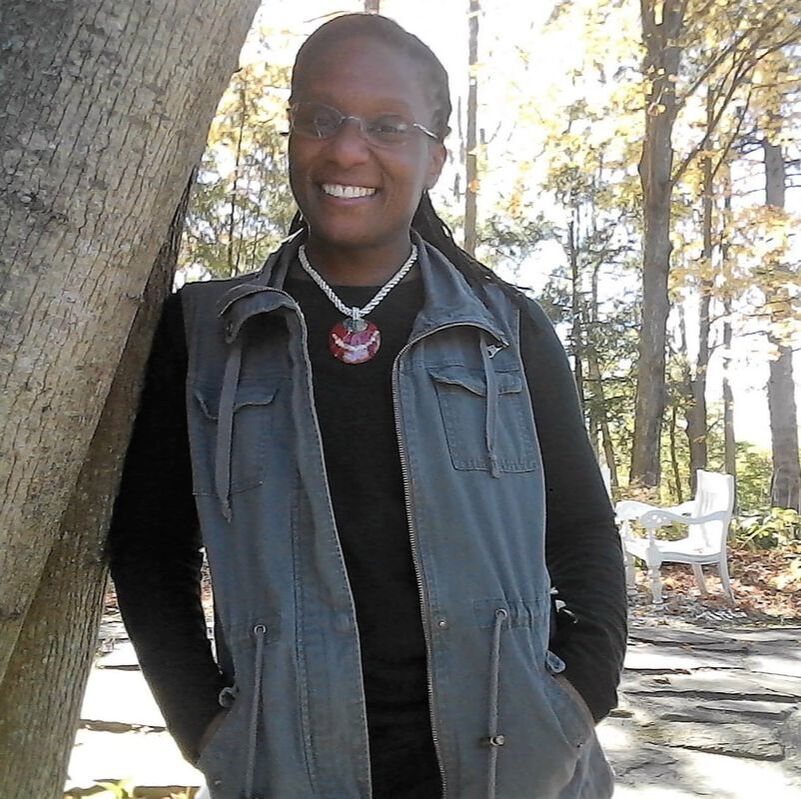
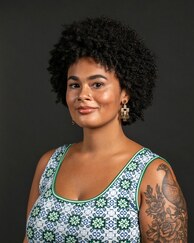
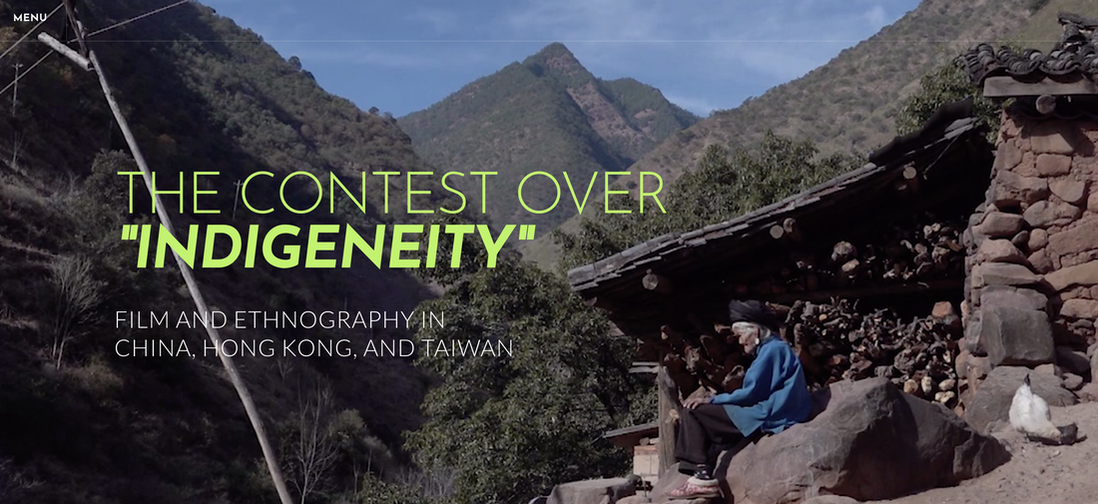
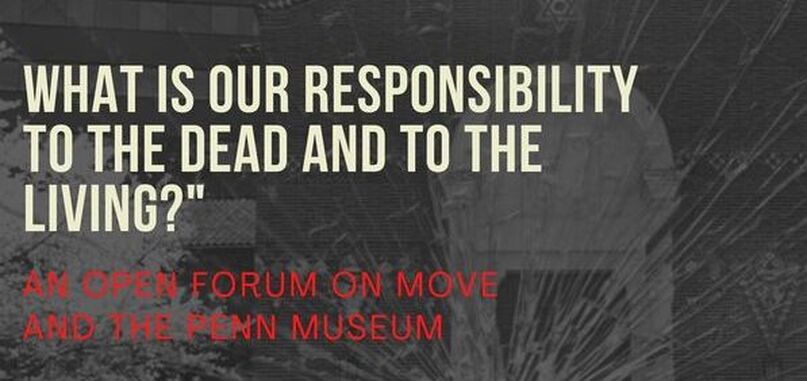

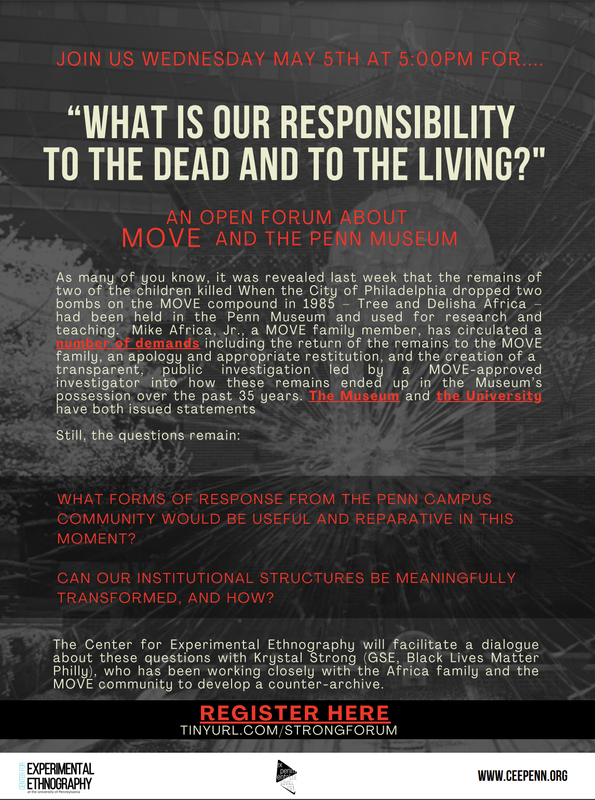
 RSS Feed
RSS Feed